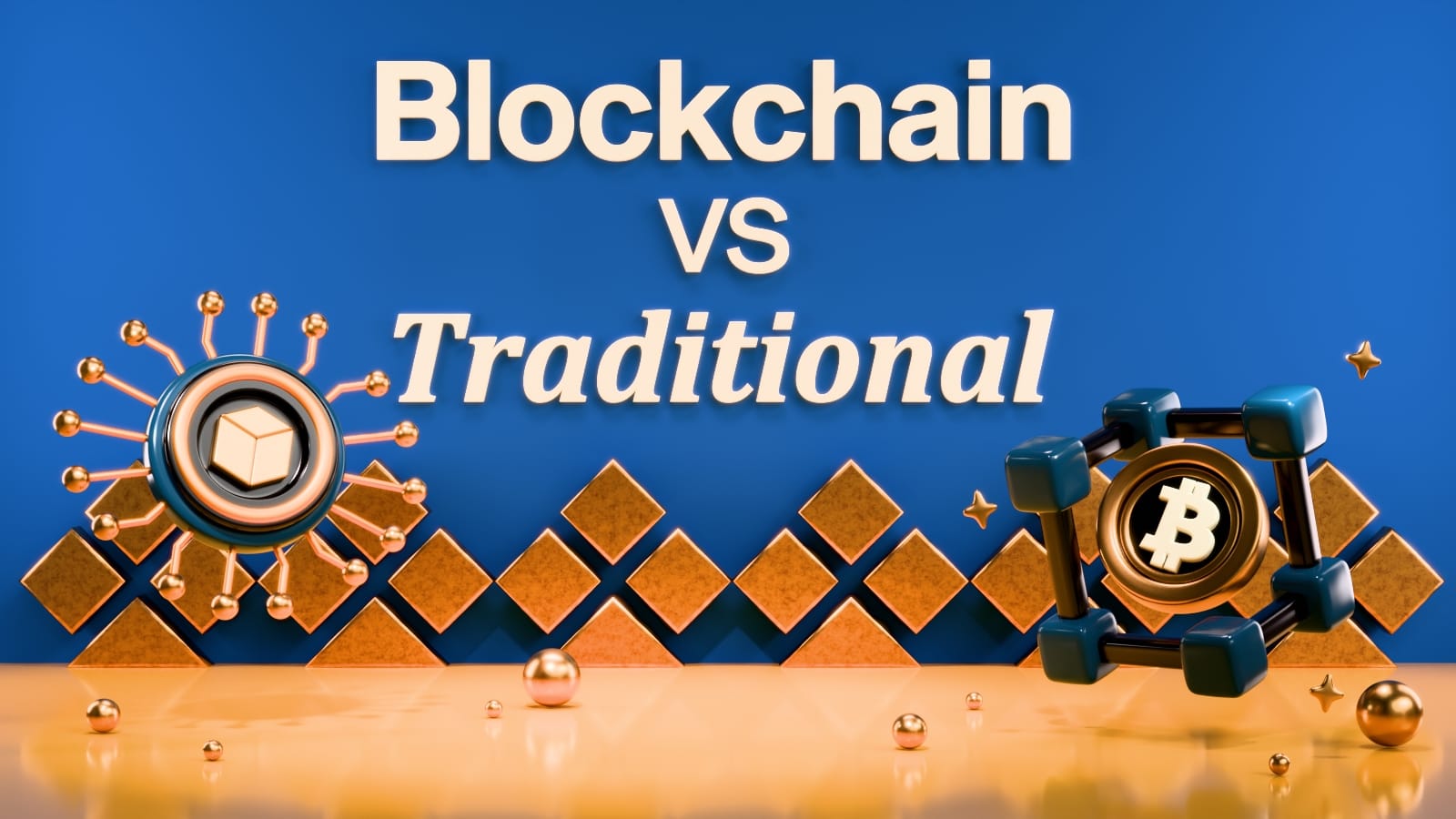What's the Difference Between Blockchain Gaming and Normal gaming?

If you've been following gaming trends lately, you've probably heard about blockchain gaming. While traditional video games have been around for decades, this newer approach to gaming is gaining attention for bringing something different to the table. But what exactly sets blockchain gaming apart from the games we've grown up playing?
Ownership of In-Game Assets
The biggest difference between blockchain and traditional gaming comes down to who actually owns the items you collect or purchase in a game.
In traditional games, when you buy a skin for your character or a special weapon, you're essentially renting it from the game company. The item exists only on their servers, and you can't do much with it outside the game. If the company shuts down the game or bans your account, those items disappear.
Blockchain games flip this model on its head. When you acquire an item in a blockchain game, it's recorded on a decentralized ledger (the blockchain), and you become the true owner of that digital asset. This ownership is typically represented as an NFT (Non-Fungible Token) that belongs to you, not the game company.
This means you can sell these items to other players, trade them, or even use them across different games that support the same assets. Your ownership exists independently of the game itself.
The Economic Structure
Traditional games typically operate as closed economic systems. Money flows in one direction: from players to game publishers. You buy the game, purchase add-ons, or make in-game transactions, but there's rarely a way to convert in-game success back into real-world value.
Blockchain games introduce what's called a "play-to-earn" model. In these games, skilled players can earn cryptocurrency or valuable digital items through gameplay. These rewards have real-world value and can be exchanged for other cryptocurrencies or even traditional currency.
For example, some players in the Philippines were able to earn a living wage during the pandemic by playing blockchain games like Axie Infinity, collecting and trading digital creatures that had real monetary value.
Game Development and Updates
The way games evolve over time also differs between these two models.
Traditional games follow a top-down approach. Developers make all the decisions about updates, new features, and the overall direction of the game. Players can provide feedback, but the final call always rests with the development team.
Many blockchain games incorporate community governance. Through ownership of the game's tokens, players can vote on proposed changes and updates. This creates a more democratic system where the community has a direct say in the game's future.
This approach can lead to games that better reflect what players actually want, though it can sometimes make development slower and more complicated.
Technical Infrastructure
Behind the scenes, these gaming approaches use very different technology.
Traditional games rely on centralized servers controlled by the game publisher. All game data, including player information and in-game assets, is stored on these servers. This centralized approach makes games faster and easier to update, but it also means the publisher has complete control.
Blockchain games operate on decentralized networks. Critical information, especially related to ownership of assets, is stored across many computers in the network. This makes the data more secure and resistant to tampering, but it can also introduce some performance limitations and costs (often called "gas fees") for transactions.
Player Experience
For most players, the practical differences in gameplay experience matter most.
Traditional games generally offer smoother, more polished experiences. They can support complex graphics, large numbers of simultaneous players, and fast-paced gameplay because they're not limited by blockchain technology.
Early blockchain games were often simpler and focused more on the economic aspects than gameplay. However, this gap is closing quickly as blockchain technology improves. Many newer blockchain games offer experiences that rival traditional games while adding the benefits of true ownership.
Starting a traditional game is usually straightforward – you download it and play. Blockchain games typically require some additional steps, like setting up a digital wallet to store your assets and purchasing some cryptocurrency. Platforms like Ridotto are working to simplify this process, but there's still a learning curve for newcomers.
Types of Games
Not all game genres work equally well with blockchain technology.
Traditional gaming excels at action-packed experiences, deeply immersive storytelling, and massive multiplayer environments where split-second timing matters.
Blockchain gaming has found its sweet spot in collectible card games, strategy games, and virtual worlds where digital ownership adds significant value to the experience. Games involving trading, collecting, and building tend to benefit most from blockchain integration.
The Social Aspect
Social interactions also differ between these gaming approaches.
Traditional games typically confine social features within the game environment – friends lists, guilds, and in-game chat systems that exist only within that specific game.
Blockchain games often create broader communities where your identity, reputation, and assets can move with you between different games. Your digital wallet address becomes a persistent identity in the blockchain gaming ecosystem.
Environmental Considerations
It's worth mentioning the environmental aspect, which has been a point of debate. Early blockchain systems required significant computing power, leading to concerns about energy consumption. However, many gaming blockchains now use more efficient methods that require far less energy.
The Future: Convergence
The future likely isn't about blockchain gaming replacing traditional gaming, but rather about the two approaches learning from each other and converging.
We're already seeing traditional game companies experimenting with limited blockchain features, while blockchain games are adopting the polished gameplay elements that make traditional games so engaging.
The ideal outcome may be games that combine the best of both worlds – the smooth, engaging experiences of traditional games with the true ownership and player empowerment of blockchain gaming.
How Ridotto Fits In
Platforms like Ridotto are at the forefront of making blockchain gaming more accessible. By providing an easy entry point into blockchain gaming without complex requirements, Ridotto helps bridge the gap between traditional and blockchain gaming experiences.
Which is Right for You?
If you value ownership of your digital assets and are interested in games where your items have real-world value, blockchain gaming offers something traditional gaming can't match.
If you prefer simplicity and games optimized purely for entertainment without economic considerations, traditional gaming might remain your preference.
Many gamers are finding there's room for both in their gaming lives, enjoying traditional games for certain experiences while exploring blockchain games for others.
As the technology and games continue to evolve, the distinction may become less important than the quality of the gaming experience itself. Whether blockchain-based or traditional, the best games will always be the ones that deliver fun, engaging experiences for players.

